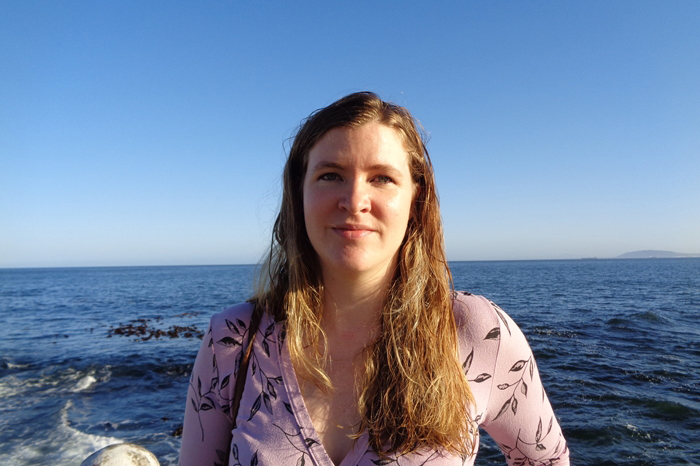Prize-winning tips for writing clearly
19 February 2015 | Story by Newsroom
As new students flex their writing skills at the start of the academic year, Meg McLaren's words of advice are handy: lucid writing begins with lucid thinking. And as winner of this year's Keswick Prize for Lucidity, Meg knows a thing or two about writing clearly – and avoiding academic obfuscation.
The latter is one of the requirements for the award, a R7 500 prize awarded annually by Sir John Chippendale Lindley Keswick (fondly known as Sir Chips). His only stipulation is that he receives a jargon-free letter of thanks!
Her essay, Impacts of Gamification on Perception and Behaviour, was based on the literature review of the technical report in her BCom Honours in Information Systems.
"I have always loved writing, although the context in which I can express that has changed. I used to enjoy creative writing, whereas now I write reports and specifications within my role as a business analyst at Old Mutual. But whatever the scope and content, it's always something that I love doing," she said.
Asked about the process of lucid writing, she reflected: "As with any communication, lucid writing requires, first of all, having clarity of thought. Your understanding needs to be clear and comprehensive if you want to be able to explain a concept to other people. You have to have pushed through the complexity, and broken it down into simple pieces.
"Once you have managed to digest it, then the challenge is to find the right words to express it."
She added that this was an iterative process, reading, re-writing, re-reading – "constantly tinkering". It is also important to ensure the parts flow together – a search for perfect alignment.
Her journey towards academia has not been without its challenges.
After she left school she lived in Spain for a year and went granadilla farming in South America. When she returned home she enrolled for a BCom PPE, but found that she really enjoyed the logic of accounting, so switched to a BCom Accounting.
Old Mutual recruited her as a business analyst and funded her PGDip in Information Systems. She confesses she has "always been into computers and technology".
Meg fell pregnant during the diploma and little Sophia arrived on February 18 last year. Burning the midnight oil and parenting were not easy, but she joked that "I had an advantage over my classmates in that I wasn't sleeping anyway!"
Thanks to her husband, Gino, who helped enormously, she managed to submit her thesis, to some applause. Emeritus Professor Mike Hart was one of her examiners.
He recalled: "Before I had even got to the methodology, I was saying to myself 'This student must do a master's with us'. She had a rare writing style – most mature, informative and readable – and we gave her the highest mark (I think) ever for a technical report. And she had just had a baby. So I had no hesitation in recommending her for this prize. It's so good that she won."
Meg hopes to continue with a master's degree once she has given her husband a chance to recover – and when funds allow.
Dean of the Faculty of Commerce Professor Don Ross is proud of her success. "Each year I tell the incoming commerce students that if there's just one skill into which they should invest extra development time, it's learning to write strongly, clearly, concisely and with some attention to style. What does a typical day in an office mostly consist in for most people? Communicating in writing. So what skill could more reliably add value to an employer? It's terrific to now have, thanks to this prize victory, a commerce grad who so beautifully exemplifies the point".
Story by Carolyn McGibbon. Image supplied.
 This work is licensed under a Creative Commons Attribution-NoDerivatives 4.0 International License.
This work is licensed under a Creative Commons Attribution-NoDerivatives 4.0 International License.
Please view the republishing articles page for more information.










